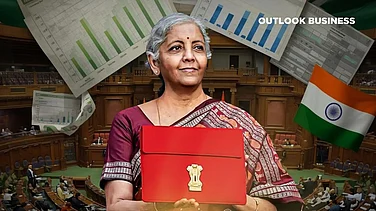Union Budget 2024 will see historic steps and “major economic and social decisions," President Droupodi Murmu said on Thursday. During a joint session of both houses, Murmu stated that the budget would serve as a "powerful document of the government's comprehensive policies and forward-looking vision."
While the exact date of the budget is not known yet, there are expectations from various sectors regarding the upcoming budget. Angel investors and venture capital firms have lots of expectations from the upcoming budget, which includes a reduction in angel and capital gains tax.
An angel tax is imposed on the capital raised through share issuance by unlisted Indian companies when the share price exceeds the fair market value of the company. The tax levied under the angel tax is 30.9 per cent. Capital gains tax, according to Investopedia, is a tax applied to the profit earned by an investor from selling investments like stocks.
The industry believes that improving the start-up ecosystem requires providing tax incentives for start-up investors, creating clear rules for carried interest, and increasing investment limits for foreign venture capital funds. Additionally, extending tax holidays and exemptions for start-ups during their early years would lay a strong foundation for growth.
“For start-ups, simplifying ESOP taxation to attract talent and reducing compliance burdens for early-stage companies will nurture innovation and growth,” said Pratekk Agarwaal, Founder and General Partner, GrowthCap Ventures.
Several start-ups came under the IT scanner recently. The notices were primarily issued in the fintech sector under Section 68 of the Income Tax Act, as per a report by the Economic Times. If a company fails to explain the nature and source of funds it has received, authorities can tax the capital raised and the income earned by the start-up for that year under Section 68 of the Income Tax Act.
Anisha Patnaik, founder of LexStart Partners, said that streamlined processes and simpler compliances should be the keys to making start-up funding in the country simpler. She said, “Today, investing in a start-up, irrespective of the quantum, involves lots of paperwork and statutory compliances. Therefore, the cost of fundraising is not always commensurate with the quantum of funds being raised.”
India witnessed severe winter funding last year, with only two start-ups attaining unicorn status last year. According to Kredible, start-up funding declined to $11 billion in 2023 from $38 billion in 2021. While funding is reviving again with major deals such as Zepto, the industry expects it to be more robust.
Experts suggest that implementing measures to attract more domestic capital to VC funds, including faster approvals for fundraising and deployment, will bolster investor confidence and speed up fund utilization. According to Startup India, fundraising is a lengthy process, often taking up to six months.
Shifting domiciles to India
A report by Moneycontrol says that the upcoming budget might enable foreign-based Indian start-ups to relocate their corporate headquarters back to India, specifically to the special economic zone of GIFT City, with minimal tax consequences.
Speaking about the move, Nikhil Parmar, Founder, Impactful Pitch, and an angel investor said, “They’re (start-ups) doing this to better comply with local regulations and look into listing on Indian stock exchanges. This shift is opening up more investment opportunities within the country for VCs and angel investors, making the investment scene here more diverse and vibrant.”
Parmar also added that this move also offers VCs and angel investors better exit opportunities through IPOs or acquisitions, helping them realize returns more efficiently. Ultimately, this allows investors to focus more on helping start-ups grow and scale their operations.
In recent times, start-ups that moved back to India are Groww and Phone. Other start-ups, such as Flipkart and Meesho, are in the process of doing the same. PineLabs has already received approval from a Singapore court to shift its domicile back to India.
































